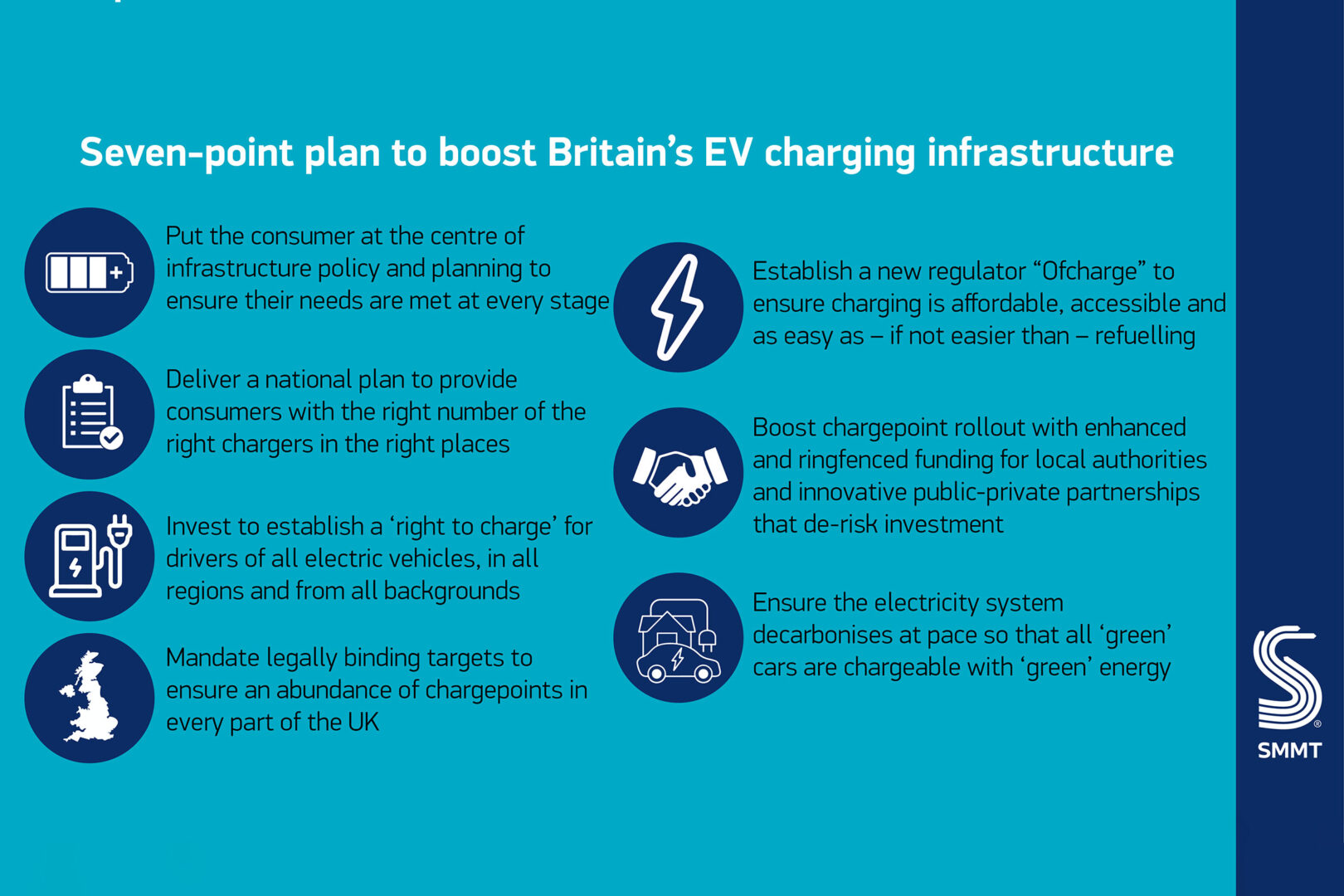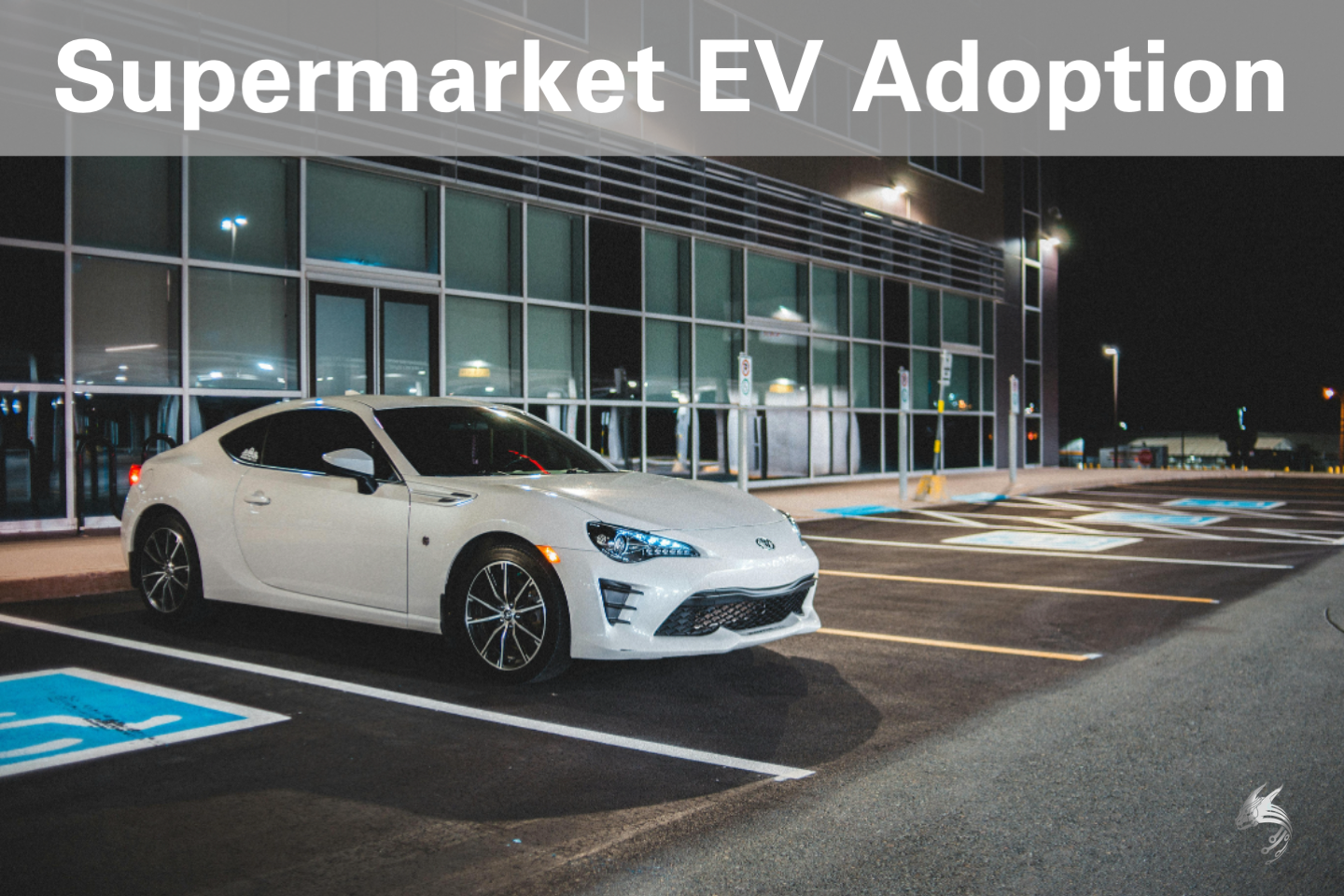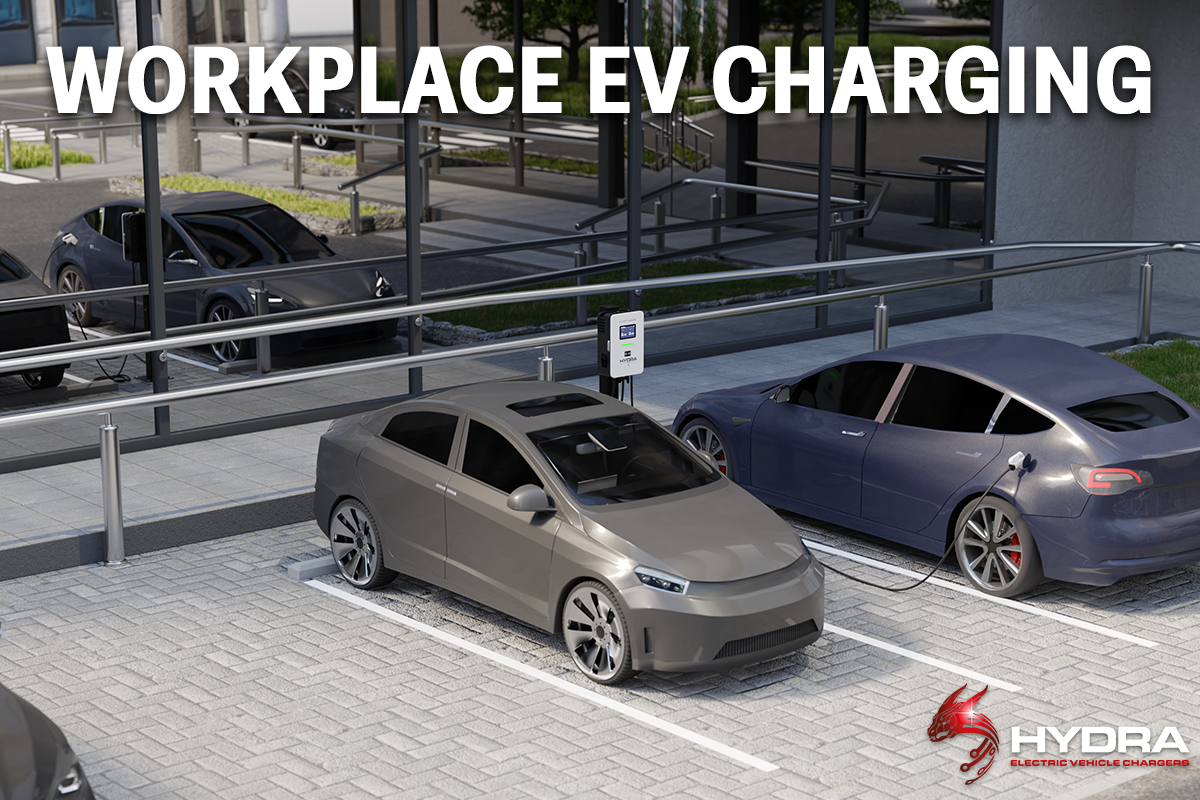The automotive industry has issued a seven-point plan to ensure every UK driver can benefit from an electric vehicle charging network that is affordable, available and accessible to all.
The UK’s current provision of one rapid charger for every 32 battery electric vehicles is the highest outside of Asia. Only China (1:11), South Korea (1:12) and Japan (1:17) serve EV drivers better.
As more than one in six new cars sold in 2021 were electric, the charging infrastructure has struggled to keep pace. Although most current plug-in car users charge at home, public chargers remain critical to consumer confidence and are still relied upon by many commercial fleets, as well as the third of British households that do not have designated off-street parking.
The industry is also calling for the creation of a new regulatory body, ‘Ofcharge’ (the Office of Charging), to monitor the market, including charging price levels and affordability, and to enforce regulated minimum standards. This would keep the consumer at the heart of infrastructure planning and rollout to ensure every region of the UK is in readiness for the end of sale of new petrol and diesel cars in 2030, with a unified approach bringing together drivers, chargepoint operators, energy companies and local authorities.
With car makers having already invested billions of pounds to bring more than 140 models of plug-in car to market in the UK and 55 more to be launched this year, a guarantee on infrastructure provision will give consumers the confidence to make the switch in even greater numbers.
The SMMT forecasts the new plug-in car market will continue to grow rapidly to 9.3 million plug-in cars by 2030 and 18.4 million by 2035, of which 6.9 million and 15.3 million respectively are zero emission, thus ensuring road transport delivers its part in the UK becoming the first major nation to be net zero
Seven steps to delivering consumer-centric charging infrastructure for zero emission mobility
- Embed consumer-centricity in policy and a national plan on charging infrastructure
- Develop and implement a nationally coordinated but locally delivered infrastructure plan
- Invest significantly to uplift all types of charging infrastructure, particularly public chargers, ahead of need
- Set binding targets to ensure adequate public chargepoint provision and social equity
- Enact proportionate regulation to deliver the best outcomes for consumer experience and expansion of provision
- Provide adequate enabling support to incentivise and facilitate delivery of charging infrastructure
- Ensure electricity networks are future-proofed and fit for purpose for zero emission mobility







